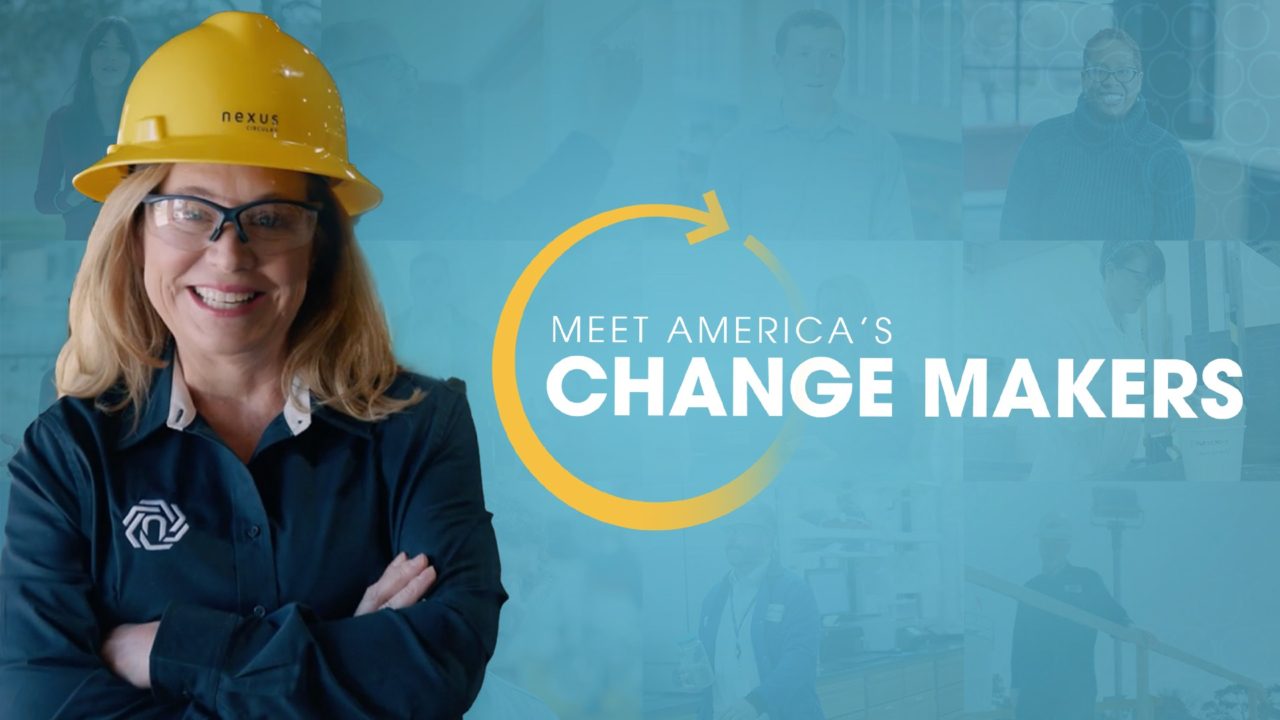Meet Jodie: CEO, Nexus Circular
Jodie loves making new things.
“I love manufacturing. I’ve done manufacturing for 35 years. It’s the best thing that you can do, right? You create amazing jobs, and you give people opportunities, they take that back to their communities, and the communities prosper as a result.”
Today she’s running a company that does more than just make things. Her company makes new products out of what used to be discarded and sent to landfills: used plastic.
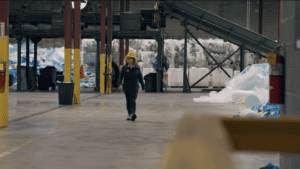
As CEO, she’s commercializing technology that can fundamentally shift the way we make and remake plastic. And she’s part of the vanguard that’s working to create a circular economy, in which plastic is reused instead of discarded.
Reusing it repeatedly in our economy. And keeping it out of our environment.
“It is phenomenally good for the environment to take post-use plastic and put it into a form that can be converted back into plastic.”
Meet Jodie. One of America’s Change Makers.
Jodie knows the important role plastic plays in our society and its contribution to sustainability.
“I fundamentally believe that plastic is really important. It lightweights our cars. It gives us food that is sustained for longer, reducing food waste. It helps keep our medicine sterile.”
But…?
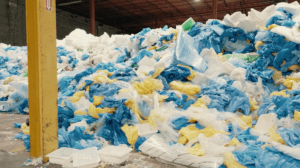
“We have to help people understand that there’s a way to take that natural resource and use it over and over and over again. And once we consistently do that, then we can use plastic for all the amazing ways that it’s valuable to the world but not have this plastic waste problem that we have today.”
Her company is focused on recycling one of the main types of plastic: film. Thin, lightweight bags and wraps that efficiently transport the stuff that we buy, replacing bulkier, heavier packaging materials.
“When we think about film, the things you might think about in your home would be a plastic zipper bag. When you bring your food home, it might have a thin film on the outside that we pull off. If you buy online, one of the things in that package is the lightweight plastic film pillow filled with air, which is simply used to protect the product as it shipped.”
But most plastic film is not recycled today. So it ends up in landfills or incinerators. Our worse, our environment.
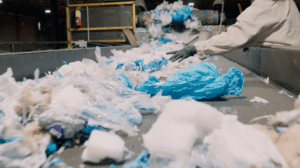
“Film is one of the most abundant post-use plastics. So by being able to handle film as a feedstock, we figured out pretty early that we could really help with a large stream of post use plastic that might otherwise end up on the sides of roads. Or in our oceans or in a landfill.”
Her company tweaked a long-used technology (pyrolysis) to recycle film and other plastics that are not widely recycled today. She compares their pyrolysis technology to a familiar toy.
“Plastic is this really cool molecule. And the way I like to describe it, it’s as if you had a tower of little toy bricks. That’s plastic, and all we’re doing is applying heat, and then that tower breaks down into individual bricks. That’s it. Those bricks then are used by our customers to create those towers again and again. Very, very good for the environment. And good for our world.”
Technology is only the beginning. It’s also about doing well. And doing good.
“Right from the beginning, our founder said, if we’re going to do this, it’s not just about the technology of taking plastics and converting it into another form. Every step of the way, it has to be economic. It’s not just about taking these molecular chains called plastic and breaking them down into their building blocks. It also must be able to be scaled.”
“So yes, we break down plastic in the pyrolysis unit. We optimized something that has been around for decades. But it was more than that. It was also making sure that we could use film, which is abundant. And it was bound for a landfill if we didn’t use it.”
Jodie likes to bring people into her facility because sometimes you just have to see things to understand.
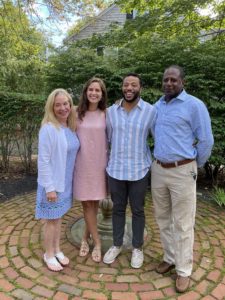
“One weekend I had my family come in here for a tour. And once they saw the piles of plastic that we have as our feedstock here, their response was, well now we get it. When you can show somebody what you do, and the impact that we can have, it’s incredibly impactful.”
And today she really loves what she’s doing. Making new things with a sustainability twist.
“I get to do what I love, which is manufacturing. But I get to also create something positive in the world.”
“And in five years, we will have demonstrated for all to see, our investors, our employees, and ourselves, that that’s possible. And we will have made a dramatic impact on the amount of post use plastic that can be turned back into plastic. That’s what we want to do.”
We wish Jodie and her team continued success.

